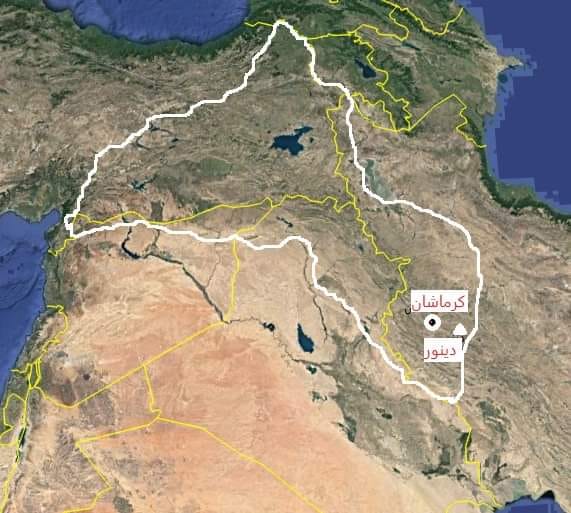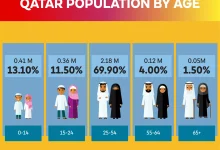An Introduction to the Kurdish People and Their Historical Context
The Kurdish people, often regarded as one of the most substantial ethnic groups in the Middle East, possess a compelling history woven with resilience, cultural richness, and persistent aspirations for political recognition. Centuries of existence have allowed Kurds to develop a distinctive identity rooted in their language, traditions, and socio-political structures. Despite sharing common cultural elements, Kurds are dispersed across several nation-states—creating a complex tapestry of political, social, and economic realities.
The term “Kurd” encompasses not only a shared ethnicity but also reflects a layered history of migration, resistance, and adaptation. The origins of the Kurds trace back to ancient Mesopotamian civilizations, where they have historically inhabited the mountainous regions correlating roughly to today’s Kurdistan. This region, marked by rugged mountain ranges such as the Zagros and Taurus, has historically provided both a geographical refuge and a strategic stronghold, enabling Kurdish communities to sustain their cultural continuity despite external pressures.
Geographical Distribution and Demographic Estimates
Understanding the Concept of Kurdistan
The geographical area identified as Kurdistan is not an officially recognized political entity but rather a cultural and geographical region characterized by a predominantly Kurdish population. This region extends across several modern nation-states—each with its unique political landscape. These include southeastern Turkey, northern Syria, northern Iraq, western Iran, and parts of Armenia. The borders are fluid and often contested, reflecting the complex political statuses and historical claims over these territories.
Population Estimates and Challenges in Accurate Census Data
Accurately estimating the global Kurdish population remains a challenge due to political sensitivities, censorship, and migratory patterns. Many Kurdish communities live under regimes that suppress ethnic identification, making official data unreliable or inaccessible. Currently, estimates range from 30 million to 45 million globally, with some sources suggesting the higher end of this spectrum due to the rapid demographic growth in certain regions.
Kurdish Populations in Specific Countries
Turkey: The Largest Kurdish Population in the Middle East
Turkey’s Kurdish population is the largest among the Middle Eastern countries, with estimates between 15 and 20 million. They primarily reside in southeastern provinces such as Diyarbakır, Van, Şırnak, and Hakkari. These regions are characterized by their rugged terrains, which historically served as natural barriers against external threats and facilitated the preservation of Kurdish cultural traditions.
The relationship between the Turkish government and the Kurdish population has been historically tense. From the early 20th century, policies of forced migration, cultural suppression, and military crackdowns have marginalized Kurdish communities. The Kurdish language, considered a vital aspect of ethnic identity, was restricted in public spheres for decades, and Kurdish political movements faced bans and persecution.
In the late 20th and early 21st centuries, movements advocating for greater cultural rights, political representation, and self-determination gained momentum. Notably, the emergence of the Kurdistan Workers’ Party (PKK) in 1984 marked a significant turning point, resulting in a prolonged conflict that profoundly impacted both Kurdish and Turkish societies. Despite ongoing military confrontations, recent years have seen some shifts toward dialogue, albeit with unresolved tensions remaining.
Iran: A Land of Cultural Heritage and Political Repression
Iran hosts an estimated 8 to 12 million Kurds, primarily in West Azerbaijan, Kurdistan Province, Kermanshah, and Ilam. These regions are distinguished by their complex socio-linguistic dynamics, with Kurdish dialects such as Sorani and Kurmanji widely spoken alongside Persian. The Iranian Kurdish community boasts a rich cultural legacy that includes traditional music, dance, storytelling, and a vibrant oral tradition.
Politically, Kurds in Iran have faced systemic repression, often denied the right to promote their language and cultural practices openly. Kurdish political activism is frequently met with harsh crackdowns, including arrests, imprisonment, and restrictions on political gatherings. Despite this, many Kurdish political organizations operate clandestinely, striving to defend cultural rights and seek greater political autonomy.
Iraq: The Debut of Autonomous Kurdish Governance
Iraq is home to approximately 6 to 8 million Kurds, constituting a significant minority within the nation. The creation of the Kurdistan Regional Government (KRG) in 2005 marked a milestone in Kurdish efforts towards self-governance. With its capital in Erbil, the KRG operates as an autonomous entity recognized constitutionally, with its own military forces—Peshmerga—and government institutions.
The Kurdish community in Iraq played a pivotal role during the fighting against ISIS, with the Peshmerga forces leading key military campaigns to reclaim Kurdish-majority territories and secure regional stability. The quest for independence remains a cornerstone of Kurdish political ambition, driven by aspirations to formalize sovereignty and secure long-term self-determination. Nonetheless, ongoing disputes with the central Iraqi government over resources, borders, and political influence continue to shape the region’s dynamics.
Syria: The Revolutionary Spirit and Autonomous Governance
Over 2 million Kurds reside primarily in northeastern Syria, with key towns including Qamishli, Kobani, and Hasakah. The outbreak of the Syrian Civil War in 2011 significantly altered the landscape for Syrian Kurds, resulting in the declaration of the Autonomous Administration of North and East Syria (Rojava). This self-administration challenges central authority and seeks to establish a multi-ethnic, democratic governance model based on principles of feminism, environmentalism, and social equity.
The Syrian Kurdish movement is distinguished by its unification of various groups, notably the PYD (Democratic Union Party) and its armed wing, the YPG. Despite military successes against ISIS, the future of Kurdish autonomy in Syria remains uncertain amid foreign interventions and shifting alliances.
The Kurdish Diaspora: Global Distribution and Cultural Preservation
European Kurdish Communities
Europe has emerged as a vital hub for Kurdish diaspora communities, with major populations residing in Germany, France, Sweden, and the United Kingdom. Germany, in particular, hosts over one million Kurds, making it the largest Kurdish population outside their traditional homelands. The Kurdish diaspora in Europe has been instrumental in fostering cultural preservation, political activism, and transnational advocacy.
Kurdish cultural institutions, media outlets, and political organizations in Europe focus on raising awareness about Kurdish issues, supporting rights campaigns, and maintaining linguistic and cultural heritage amidst diaspora challenges. The community’s political engagement also extends to lobbying efforts and participation in local protests and policy debates regarding Kurdish independence and human rights.
North American Communities
In North America, Kurdish populations are smaller but nonetheless significant, primarily concentrated in the United States and Canada. Notably, Nashville, Tennessee, hosts one of the largest Kurdish enclaves in the United States. This community actively promotes Kurdish cultural events, language classes, and political advocacy, often collaborating with Kurdish organizations worldwide. The Kurdish diaspora’s involvement in North America is crucial for diplomatic advocacy, international awareness, and humanitarian efforts.
Cultural Heritage and Identity Preservation
The Language and Literature of the Kurds
The Kurdish language is an integral aspect of cultural identity, with two major dialects: Kurmanji and Sorani. Kurmanji is widely spoken in Turkey, Syria, and parts of Armenia, while Sorani dominates in Iraqi Kurdistan and parts of Iran. Despite linguistic suppression in many countries, the Kurdish language has experienced a renaissance through literature, media, and digital platforms.
Kurdish literature boasts a rich oral tradition that traces back centuries, expressing themes of resistance, love, history, and social justice. Prominent poets like Cigerxwin, and modern writers continue to shape Kurdish literary identity, fostering a sense of unity and cultural pride.
Music, Dance, and Artistic Expression
Kurdish music and dance are vibrant expressions of their cultural identity, often reflecting historical struggles and community cohesion. Traditional instruments include the tembûr (a stringed instrument), the daf (frame drum), and zurna (a wind instrument). Kurdish dance forms, such as the “Halay,” are characterized by their communal, circle-based movements, symbolizing unity and collective resilience.
Cultural festivals, such as Nawroz (New Year), serve as significant events for celebrating Kurdish heritage, showcasing performances, poetry, and traditional cuisine. Art and craftsmanship, including intricate embroidery and carpet weaving, also play vital roles in preserving Kurdish cultural aesthetics.
Political Movements and Struggles for Autonomy
The Role of Kurdish Political Parties
Kurdish political institutions are diverse, representing various ideological spectra from nationalist independence to pragmatic autonomy. In Iraq, the Kurdistan Democratic Party (KDP) and the Patriotic Union of Kurdistan (PUK) are the most prominent, often cooperating but also competing over resources and political influence.
In Turkey, the Kurdistan Workers’ Party (PKK) has historically led the armed struggle, although a ceasefire or peace negotiations have periodically emerged. The pro-Kurdish People’s Democracy Party (HDP) also advocates for increased rights and decentralization within Turkey’s political system.
In Syria, the PYD operates as the leading Kurdish party within the Autonomous Administration of Rojava, promoting a grassroots democratic model rooted in pluralism and gender equality.
Challenges of the Kurdish Independence Movement
Despite widespread popular support for Kurdish autonomy, independence remains elusive due to regional and international geopolitics. Major powers, including Turkey, Iran, and Syria, perceive Kurdish independence as a threat to their territorial integrity. Regional alliances and conflicts, often involving foreign military interventions, complicate Kurdish aspirations for statehood.
Economic dependencies, internal political divisions, and ongoing conflicts further hinder their progress. Nevertheless, Kurdish leaders continue to negotiate, advocate, and organize to enhance their political leverage, emphasizing diplomacy and international support.
The Future of the Kurdish People and Prospective Developments
Potential for Statehood and Regional Recognition
The potential for an independent Kurdish state is a topic of ongoing debate among scholars, policymakers, and Kurdish leaders. While declarations of independence have occurred, practically, establishing a sovereign state involves overcoming regional opposition, securing international recognition, and resolving internal governance issues.
Diplomatic initiatives, such as recognizing the Kurdish referendum in Iraq in 2017 or fostering bilateral agreements, could influence future prospects. However, large geopolitical pressures and security concerns pose significant obstacles. A gradually evolving process of increased autonomy and regional recognition seems more plausible in the near term.
Technological and Cultural Evolution
Advancements in digital technology and social media have transformed the Kurdish community’s capacity to organize and communicate globally. Kurdish diaspora communities leverage these platforms to preserve their language, document their history, and advocate for political causes.
At the same time, Kurdish artists, writers, and filmmakers employ modern mediums to depict their stories, challenge stereotypes, and promote cultural resilience. This cultural renaissance facilitates a stronger collective identity and enhances their international visibility.
Summary and Reflection on the Kurdish People’s Enduring Spirit
The Kurdish people exemplify resilience in the face of adversity, leveraging their rich cultural heritage, strategic geographical positioning, and persistent political activism to sustain their identity and aspirations. Despite enduring repression, marginalization, and ongoing conflicts, they have demonstrated remarkable resilience, adaptability, and unity in pursuit of their rights.
As the global political landscape evolves, the Kurdish quest for recognition continues to inspire international discourse on self-determination, minority rights, and regional stability. The steadfastness of the Kurdish people, combined with growing international awareness and support, underscores their enduring hope for a future where their cultural and political aspirations can be realized in a peaceful and just manner.
References and Further Reading
- Encyclopedia Britannica: Kurds
- Freesourcelibrary.com – A comprehensive platform hosting open-access articles as part of the free knowledge movement.
Data Table: Kurdish Population Estimates by Country
| Country | Estimated Kurdish Population | Major Regions | Notes |
|---|---|---|---|
| Turkey | 15–20 million | Southeastern provinces such as Diyarbakır, Van, Şırnak, Hakkari | Largest Kurdish population in a single country; historical tensions persist |
| Iran | 8–12 million | West Azerbaijan, Kurdistan, Kermanshah, Ilam | Strong cultural preservation despite repression |
| Iraq | 6–8 million | Primarily Iraqi Kurdistan (Erbil, Sulaymaniyah, Dohuk) | Autonomous region with significant political influence |
| Syria | 2–3 million | North and East Syria, Kobani, Qamishli | Autonomous administration post-2011 civil war |
| Globally (Diaspora) | Several million | Europe, North America, Australia, Middle East | Active cultural and political communities abroad |
The complexity of Kurdish society, politics, and culture ensures that ongoing scholarship, activism, and negotiations will shape their future trajectory. Their story remains a testament to endurance, cultural pride, and the universal human desire for self-determination.




